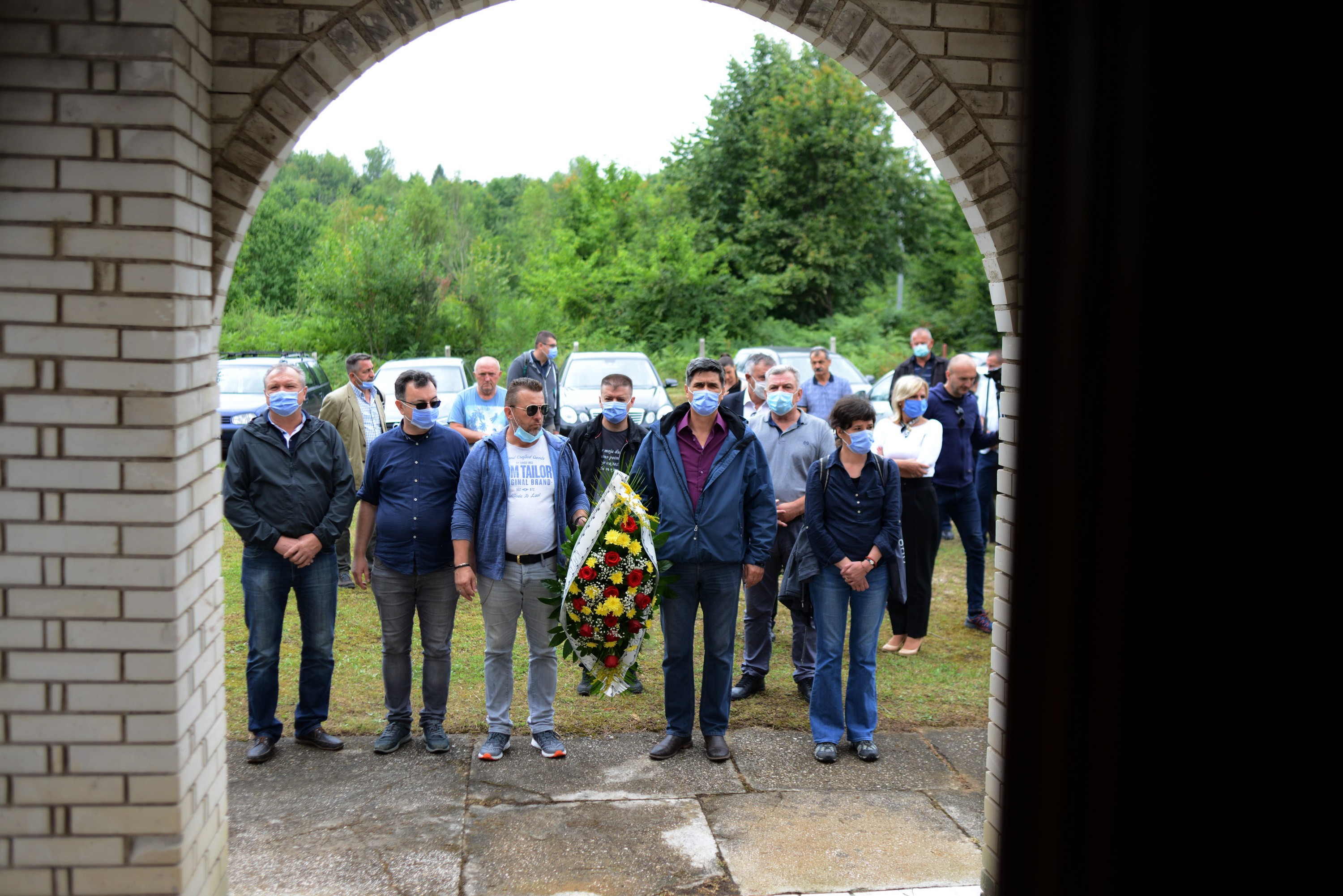War veterans from Bosnia and Herzegovina and Croatia, former members of the Army of RBiH, HVO, VRS and HV, attended commemorations and paid their respects to victims in Briševo and Zecovi near Prijedor where 25 July 2020 marked 28 years since the crime committed there against Bosniaks and Croats from the area.
It was 28 years ago, in operations of the Republika Srpska Army on the left bank of the Sava that had started on 23 July, that hundreds of Bosniak and Croat civilians were killed and many were taken from there to camps in Prijedor and Sanski Most. In the Croat village of Briševo, over two days, on 24 and 25 July 1992, 68 civilians, women, children and the elderly, were killed. In Zecovi, located near Briševo, more than 100 civilians were killed, also mostly women, children and the elderly. Among those killed in Zecovi was the family of Fikret Bačić, his two children, his wife, mother and another 30 relatives.
War veterans from the region and peace activists attended the commemorations at the invitation of the organiser, the Association “Dom Briševo – Dobri” and the surviving members of Fikret Bačić’s family who have been organising commemorations in Zecovi for their loved ones for years.
“We have come, as war veterans and peace activists, to honour all victims and send a message that the terrible violence of war should never be repeated. I am personally ashamed of all these sites where people were killed, especially those that were helpless, either as civilians or as prisoners. These atrocities represent the downfall of civilisation. We would like to express our deepest respect for the victims in Briševo and Zecovi and their families, especially those still searching for their loved ones. As former fighters, we want to emphasise the importance of continuing to prosecute those responsible for these war crimes and of finding missing persons,” said Amer Delić, member of the Centre for Nonviolent Action and war veteran of the Army of BiH from Zavidovići, and added that war veterans from Serbia who usually attend commemorations were not able to travel this time due to the pandemic.
Since 2008, the peace organisation Centre for Nonviolent Action, with offices in Sarajevo and Belgrade, has been organising visits by groups of war veterans from Croatia, Serbia and BiH to sites of atrocities against civilians and soldiers committed in the recent war and to official commemorations honouring victims, organised by local and state authorities and victims’ associations.
Zdravko Marijan, president of the “Dom Briševo – Dobri” Association told the war veterans and peace activists who attended the commemoration about the details of the attack and crimes perpetrated against the people of Briševo, the current situation regarding the return of those who were expelled, the construction of a memorial to honour those who were killed…
“Unfortunately, Briševo is deserted and overgrown today, only a single family has returned, it is likely that in ten years there will be no one left. Our association has set itself the task of maintaining memory of our loved ones and their sacrifice while we’re alive. This is where the largest number of Croats were killed in Bosnia and Herzegovina, but unfortunately, we feel neglected, the village does not even have a decent dirt road, we have no electricity, the commemoration is not attended by high officials… I am a veteran myself, I participated in battles, I know what war is… But killing civilians, killing children and the powerless is a war crime, it is always a war crime, no matter who the victims and perpetrators were,” said Marijan.
The mass in Briševo was led by Franjo Komarica, the Bishop of Banja Luka. In his address, he stressed the importance of remembering the victims, but also of forgiveness and reconciliation. Bishop Komarica stands with the people of Briševo every year, and in his address he pointed out how he has endeavoured to preserve the memory of the victims all these years, standing up to the political manipulations of victims. At the end of the mass, a message of Bishop Komarica about forgiveness and reconciliation was read, and don Boris Ljevak of the parish thanked the veterans who had come to share in their pain.
After returning to their home, the surviving members of the Bačić family made a monument to their loved ones in the form of an open book. Today, Fikret Bačić is a recognisable symbol of the struggle for the right to be remembered for victims in Prijedor, especially child victims. He told the war veterans who had come to Zecovi how he set two duties for himself: to find his family members who are still listed as missing to this day and to pursue the prosecution of their killers.
“I cannot forgive the killers, nor do I want to. I cannot blame a whole people for my suffering, but the killers and perpetrators are known and they are on trial now,” Bačić explained. The people of Zecovi face similar problems as the people of Briševo, in particular the lack of a water supply system.
Pero Vočkić, a VRS veteran from Šamac, related how places like this always sadden him because he witnesses the pain of the victims.
“When you hear that after so many years, the families have still not found their loved ones, then the most important message is to help find those who were killed, so that they and their families can find at least some peace,” said Vočkić.
Under the organisation of the Centre for Nonviolent Action, veterans from the region have attended commemorations in BiH in Gornji Vakuf, at Site 715 near Zavidovići, in Stog near Vozuća, in Novi Grad/Bosanski Novi, Sanski Most (Hrastova glavica), Sijekovac near Brod, Laništa near Brčko, Trusina near Konjic, Ahmići near Vitez, Grabovica near Mostar, Skelani near Srebrenica, Stupni Do near Vareš, and in Serbia in Grdelička klisura near Leskovac, Varvarin near Kruševac, Aleksinac, as well as in Croatia in Pakrac, Varivode and Gošić near Knin.

